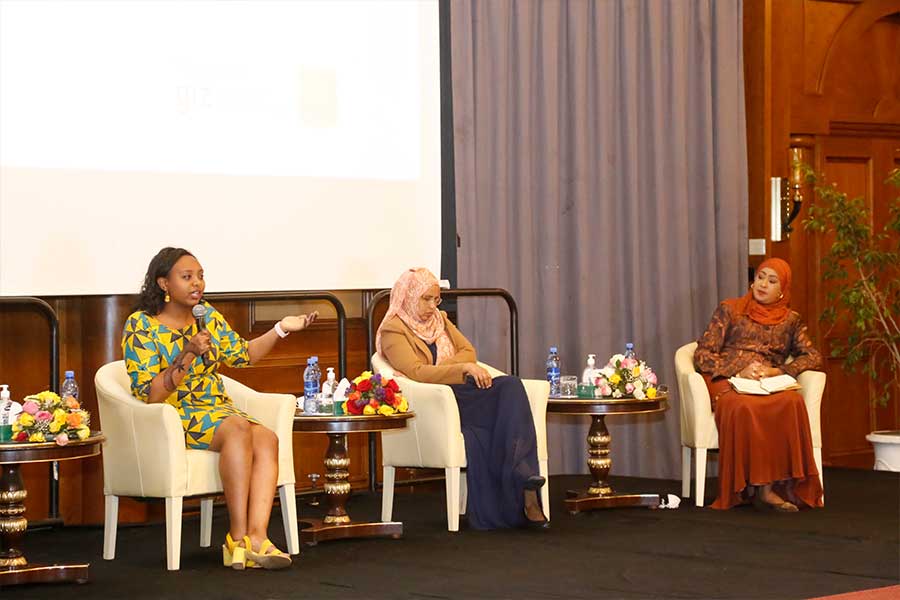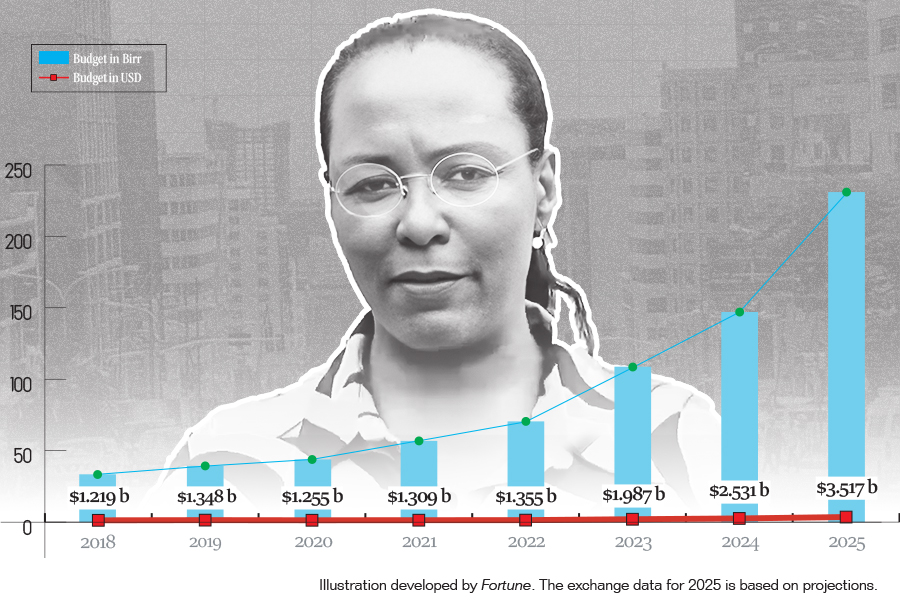
Commentaries | Mar 09,2024
Mar 26 , 2022
By Tigist Solomon
There are both biological and gender differences between a man and a woman. For sociologists and anthropologists, socialisation and cultural values determine gender differences. In most developed societies, parents initiate gender differences by offering dolls to girls and toys or video game consoles to boys. In most rural areas of Ethiopia, girls and boys are used to seeing their mothers and older sisters responsible for household chores while their fathers and older brothers mainly take care of outdoor activities.
As such, the gender roles assigned to women and men are accepted norms by society. Men are often assigned to outdoor activities in most traditional societies while women are unpaid housekeepers and caretakers. Women, including girls, are responsible for cooking, cleaning, childcare, fetching water, collecting firewood and selling at the market.
Men focus instead on outdoor activities such as agricultural work. Society in most rural areas perceives men as the sole breadwinners in the family while women are considered spendthrifts. Usually, housewives use money given by breadwinners (husbands) to buy food to prepare meals for the family. The activities attributed to women in the home have less value and prestige and do not involve any remuneration.
Nevertheless, household chores are recognised as employment and generate income for rural females who migrate to neighbouring towns and cities. The first paid job of female urban migrants is primarily domestic work. The specific gender roles assigned to women and girls in rural areas generate income in the city with more training and good experience in domestic work. By working as domestics, female migrants earn an income to support themselves and their families back home. International migration for domestic work in the Middle East is also widespread among rural women in Ethiopia. Instead, rural men are encouraged to stay in their homeland with opportunities for agricultural work and land inheritance. There are indeed few paid jobs available to them abroad for the skills they acquire.
Nevertheless, the working conditions of domestic workers are hazardous and require long working hours in exchange for low pay.
Research in three major cities in Ethiopia indicated that 49pc of female domestic workers never had the chance of going to school compared to 13pc of non-domestic workers. The same research disclosed that female domestic workers are at risk for sexual abuse and non-consensual sex that are rarely reported for fear of losing jobs or accommodations with those residing in the household.
Domestic work in Ethiopia is known for being an exploitative profession with long working hours for little or no pay. They earn lesser than other workers. Studies on domestic work in Ethiopia revealed that the profession is not regulated by labour laws and the country has not ratified International Labour Organisation’s (ILO) Domestic Workers Convention (C189) which appeals for standards such as minimum wages and working hours and protections from all forms of abuse, harassment and violence. Ratifying the convention as well as setting proclamations to regulate the working conditions of domestic workers are needed. Likewise, those migrating to the Middle East need the support necessary for their protection.
Although women's roles, such as unpaid housework, are gaining value and acceptance as a formal form of employment and income-generating activity, more and more advocacy is needed to protect the welfare and rights of female workers. Current efforts by government and non-profit organisations to promote the protection of domestic workers in Ethiopia are encouraging and need to be further strengthened. The added value to unpaid female housework through paid domestic work contributes to the effort in promoting gender equality in the country.
PUBLISHED ON
Mar 26,2022 [ VOL
22 , NO
1143]


Commentaries | Mar 09,2024

Radar | Jun 05,2021

Fortune News | Aug 08,2020

Agenda | May 29,2021

View From Arada | Dec 07,2019

Radar | Jan 31,2021

Covid-19 | May 31,2020

Radar | Dec 07,2019

Viewpoints | Sep 11,2020

Radar | Aug 22,2020

My Opinion | 108833 Views | Aug 14,2021

My Opinion | 105226 Views | Aug 21,2021

My Opinion | 104038 Views | Sep 10,2021

My Opinion | 103323 Views | Aug 07,2021

Jul 13 , 2024 . By AKSAH ITALO
Investors who rely on tractors, trucks, and field vehicles for commuting, transportin...

Jul 13 , 2024 . By MUNIR SHEMSU
The cracks in Ethiopia's higher education system were laid bare during a synthesis re...

Jul 13 , 2024 . By AKSAH ITALO
Construction authorities have unveiled a price adjustment implementation manual for s...

Jul 13 , 2024
The banking industry is experiencing a transformative period under the oversight of N...

Jul 20 , 2024
In a volatile economic environment, sudden policy reversals leave businesses reeling...

Jul 13 , 2024
Policymakers are walking a tightrope, struggling to generate growth and create millio...

Jul 7 , 2024
The federal budget has crossed a symbolic threshold, approaching the one trillion Bir...

Jun 29 , 2024
In a spirited bid for autonomy, the National Bank of Ethiopia (NBE), under its younge...

Jul 21 , 2024 . By TIZITA SHEWAFERAW
Mayor Adanech Abebie's Administration faced an audit report that unveiled a startling...

Jul 21 , 2024 . By AKSAH ITALO
Brook Taye (PhD), director general of the Ethiopian Capital Market Authority, has tak...

Jul 21 , 2024 . By AKSAH ITALO
Ethiopia's horticulture, a major source of foreign currency and employment, is facing...

Jul 21 , 2024 . By AKSAH ITALO
Commercial banks are now permitted to acquire equity shares in capital market service...